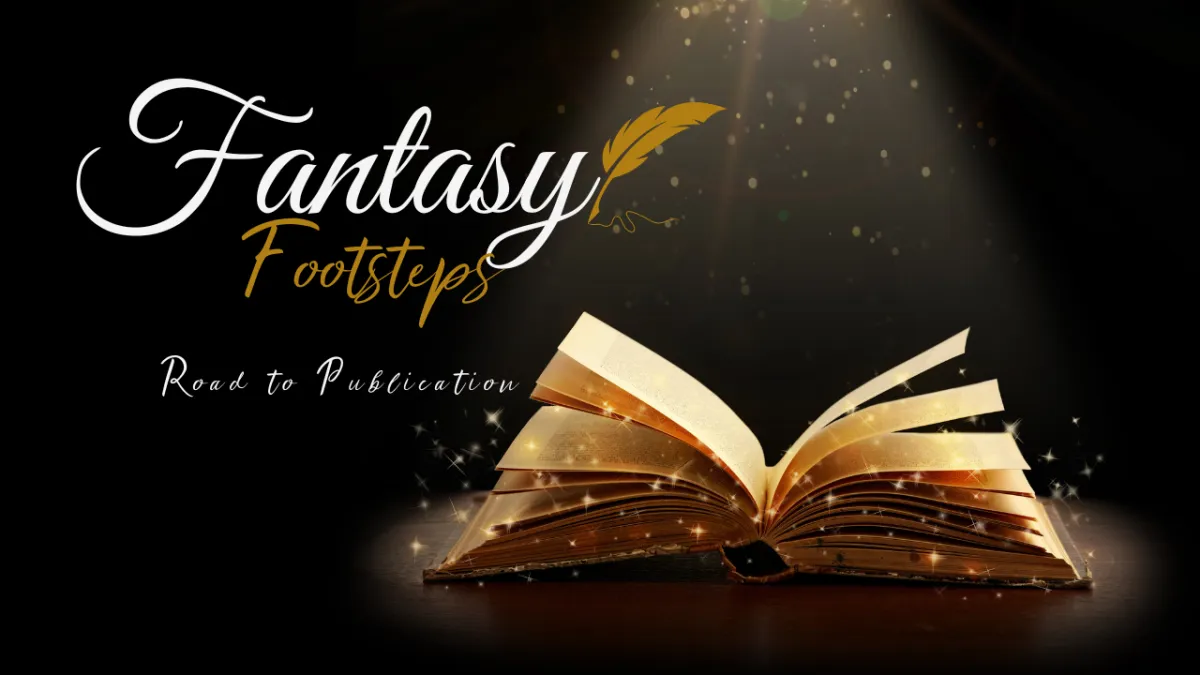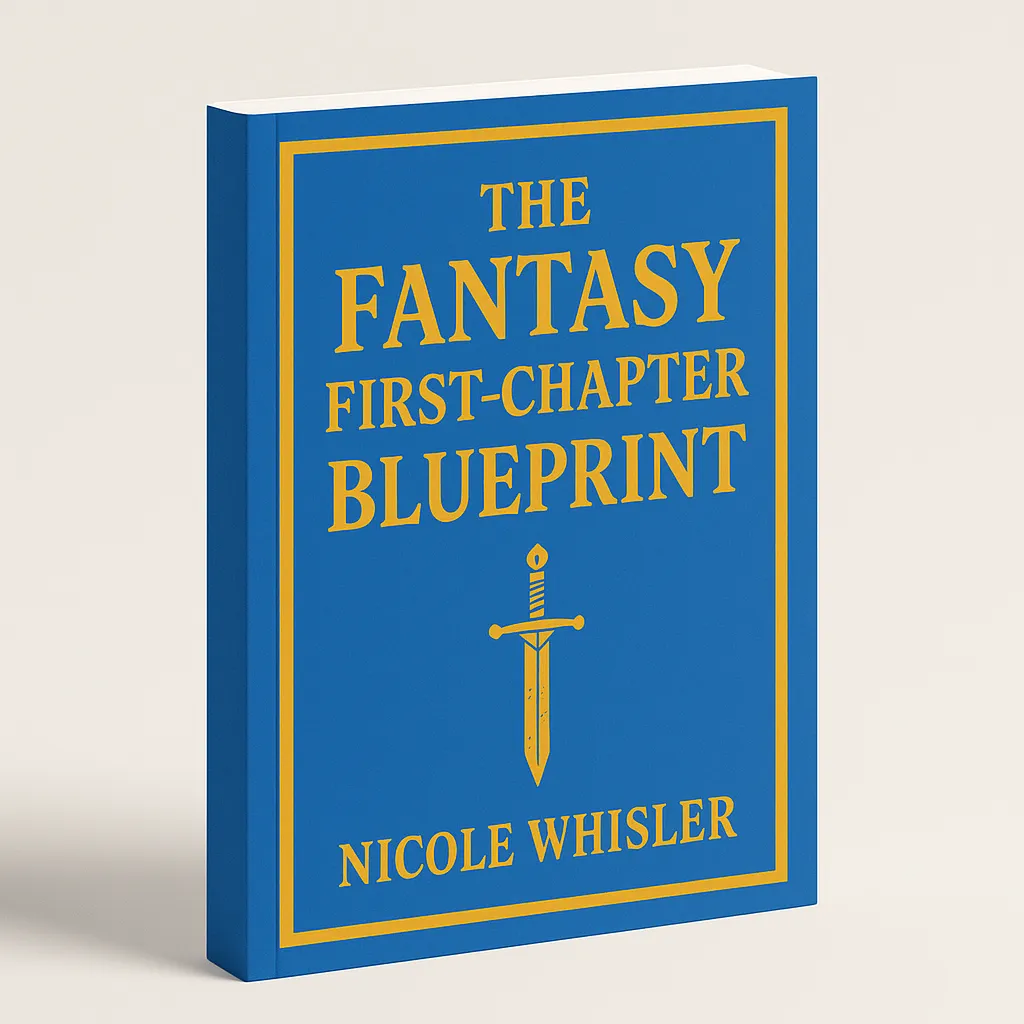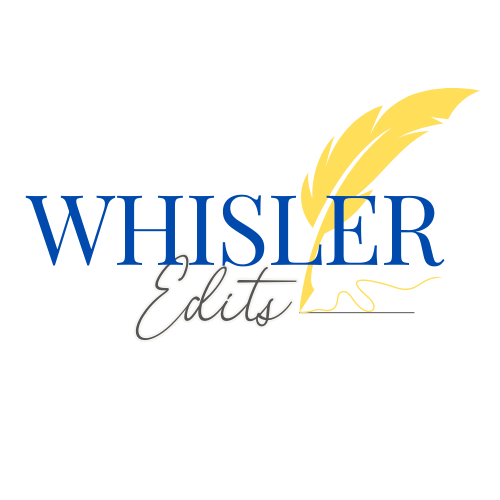The Fantasy First-Chapter Blueprint
Your first chapter is your one shot to hook an agent or a reader. Don't let the 7 deadliest mistakes land your manuscript in the rejection pile. This free 7-day email course gives you the step-by-step blueprint to avoid them and craft an irresistible opening.

Your Novel Matters ...
Looking for the right book coach for your fantasy novel?
Are you a fantasy writer …
… struggling to convert the vivid scenes of your fantasy novel from your imagination to the page?
… stuck in a loop where you constantly rewrite your opening pages?
… worried your story won’t resonate with your readers?
What if I could show you the exact steps week to week that would take you from brainstorming and drafting to revising and publication?
I specialize in developmental editing and book coaching for writers of fantasy novels—writers who value the craft of storytelling and wish to create stories that resonate.
My Services
Develop Your Ideas
Fantasy Footsteps: Road to Publication

I’ll let you in on a secret. All you need to succeed as a writer are three things:
A Roadmap: Illuminate your path with a step-by-step guide, ensuring you achieve your writing goals every week. From outlining to publishing, every stage of your journey is mapped out for success.
Mindset Mastery: Learn how your thoughts control your outcomes in your writing. Overcome self-doubt and unearth the confidence that will bring your unique ideas to life on the page.
Personalized Support: Prepare for comprehensive assistance, real-time accountability, and feedback tailored to your needs. From brainstorming sessions to final publication, you'll have a dedicated ally guiding you every step of the way.
With these three pillars, you'll unlock the potential to:
Craft a captivating story that enthralls readers from the first page to the last.
Develop complex characters and immersive worlds that resonate deeply with your audience.
Navigate the complexities of plot twists and pacing, keeping readers hooked until the final chapter.
Receive specific guidance on refining your scenes so that readers root for your protagonist.
Overcome writer's block and stay motivated throughout your writing journey, ensuring consistent progress.
Transform your rough draft into a polished, professional manuscript ready for publication.
Are you ready to turn your fantasy novel from a mere vision into a masterpiece that captures hearts and minds?
Join Fantasy Footsteps: Road to Publication and begin your author journey with everything you need to write a story that works.
Don't let your story remain trapped in your mind—bring it to life with me!
If you’re thinking, “Yes, please! Tell me what to do!” , I’d like to invite you to work one-to-one with me to finish your novel and write a story that works. Join my book coaching program designed specifically for fantasy writers—Fantasy Footsteps: Road to Publication.

Discover Helpful Tools
Resources For Writers
Here you will find some of my favorite resources for writers.
Add these books, podcasts, websites, and other resources to your writing toolbox to augment your writing at any stage.
Join My Free, Private Facebook Group
Finish My Fantasy Novel: Write & Revise My Best Book in 6 Months
In the group, I go live weekly with writing tips. The group is also a platform for writers to support each other and share their wins and progress.
Live training schedule:
1st Tuesday of the month: Free critique for someone in the group!
2nd Tuesday of the month: Writing sprint with fellow writers
3rd Tuesday of the month: Live training on a specific topic
4th Tuesday of the month: Interview with an author or marketing/business expert


Improve Your Craft
Writing Advice Blog
As a developmental editor and book coach, everything I post is designed to help you build your creativity, strengthen your prose, and explore new avenues in your writing. The opinions in each post are my own, but many are inspired by ideas from established authors and editors who excel in their fields.
Rely on my blog for clear and specific writing advice, motivational tips and grammatical aid, and interviews with experts!
Hi! I'm Nicole.
I’m a Developmental
Editor & Book Coach for Fantasy Writers.
Like you, I'm a writer. I understand the mental and emotional ups and downs of storytelling. Don't let resistance win! Recognize the value of good advice plus hard work.
My approach to novel writing is multifaceted. For a deeper understanding of my process and style, take a look at some of my favorite craft-of-writing books in my Resources section.
What can I say about myself? I read, I write, I read about writing, and I write about reading. It never gets old to me.

See what writers like you are saying . . .

Nadir Shirazi
“I’ve been stalling on my Islam-inspired sci-fantasy series for 10 years. But within 10 minutes of starting Nicole’s program, I started writing again."

Amanda Emerick
“I can’t recommend Fantasy Footsteps enough to writers who are legitimately looking to polish their craft, write, and eventually publish their novel."

Trinity Cunningham
“I loved discussing my story with Nicole. She provided me with invaluable insights I never would have considered on my own."
Latest on the Blog

You will find no pictures of kittens here. No images of favorite dessert recipes, snapshots of my recent vacations, videos of puppies playing the piano (although I do love dogs), or YouTube clips of monkeys stealing people’s sunglasses.
I’m genuinely sorry if that disappoints you.
Instead, you can rely on my blog for clear and specific writing advice, motivational tips, grammatical aid, and author/editor interviews.
As a developmental editor & book coach, everything I post is designed to help you build your creativity, strengthen your prose, and explore new avenues in your writing. The opinions in each post are my own, but many are inspired by ideas from established authors and editors who excel in their fields.
Some of these tips might be just what you need to hear. Others might not work for you personally, and that’s okay.
Apply the tips that fit your personality and writing habits, and feel free to adapt or ignore the others. For further questions and comments, you can email me or reach me through my Contact page.

Boost Your Story's Momentum with Narrative Drive
Discover in this post …
what makes readers give up on a story—and how to avoid writing that kind of book.
a clear definition of narrative drive and why it's important for your manuscript.
simple steps to ensure each scene in your story pushes the plot forward.
Don't Write THAT Book
You know the book I'm talking about.
The one you read way back that dragged on forever.
You didn't really care about the characters ... so what difference did it make if they achieved their goals? You kept getting to the next chapter, waiting for something to happen. Trusting that maybe, just maybe, the author knew what they were doing. Were you about to arrive at a satisfying twist? Meet a lovable new character? Learn something about the protagonist that made you want to follow them to the ends of the earth?
No. No. And no.
You debated putting the book down altogether. (In fact, maybe you did. The book was so bad you can't remember!)
As writers, we'd like to think that this will never be readers' experience with our book, our story.
But the truth is, we're way more in love with our characters than our readers are at the start. Readers don't understand or care about our vision by default. It's our job to transfer the vision in our head to the page in a way that resonates, and it's not an easy task.
Page-turners don't happen by accident. They're up to us to create.

How do I do that? you might ask.
Lots of ways. But my favorite way to keep readers glued to the page is by ensuring the story contains a strong sense of narrative drive.
What Is Narrative Drive?
Picture a decorative chain that stretches from one side of a room to the other. Let's say you tape the first and last links to the ceiling.
If you cut just a single link of that chain, what happens?
The chain separates, right? It's no longer a cohesive unit but has become two disconnected parts, hanging from the ceiling with no clear purpose.
It's the same with storytelling. Every scene you write represents a link on your chain. One scene leads directly to the other, and so on and so forth. When a scene doesn't relate to the overarching story, readers sense it, and the story loses its sense of logic and unity.
On the other hand, if each scene in the story flows seamlessly into the next, with the events of one scene causing the events of the second, the story feels satisfying and complete.
So in terms of story, let's define narrative drive as "a strong sense of forward momentum (created by an intentional logical flow from scene to scene) that propels readers to turn the page."
If that sounds like mumbo jumbo ... perhaps an example will help.
How to Create Effective Narrative Drive
It's not difficult to understand the concept of cause and effect in a story: one event should spark another, and in the end, all events should matter in some way. But sometimes we're so close to our own characters and plot that we struggle to apply this concept in a way that actually makes readers turn pages.
Let's say you're writing about a young girl, Serrah, who has hidden magical powers. She's aware of her powers, but she can't control them yet. While walking home from school, she comes across a friend being bullied by a group of older kids. She walks toward her friend, intending to help in some way, but the bullies grab Serrah's arms and hold her back.

Serrah has two choices: 1) use her secret powers to get revenge on the bullies or 2) stay out of the situation. The key item to remember is this: Whatever path Serrah chooses should clearly impact the trajectory of the story. For example, if Serrah chooses to unleash her powers despite her lack of control, she might seriously injure one of the bullies.
Let's explore what Serrah's available choices would look like—with and without a clear sense of narrative drive on the page:
Choice 1 without Narrative Drive: Serrah injures one of the bullies, but things are back to normal the next day, and Serrah must deal with a new and unrelated problem.
Choice 1 with Narrative Drive: Serrah injures one of the bullies, and she immediately feels so guilty that she vows never to use magic again. Upon reflection, she comes to view magic as inherently evil and begins to study ways to remove magic from the world.
Choice 2 without Narrative Drive: Afraid of the consequences, Serrah decides to stay out of the situation. She tells herself there's nothing to be done and leaves. She apologizes to her friend the next day, and her kind and understanding friend accepts her apology.
Choice 2 with Narrative Drive: Afraid of the consequences, Serrah decides to stay out of the situation. She tells herself there's nothing to be done and leaves. That night, her guilt threatens to tear her apart, and the next day, her friend won't speak to her. This sends Serrah down a determined path to learn how to develop and control her powers.
Do you see how narrative drive doesn't merely revolve around the choice Serrah makes (which is vital in itself), but the impact of that choice?
Readers who don't see a clear impact on the page often won't stick around to read the rest of the story. They might not be able to identify what's off on a conscious level, but their gut will tell them, "Not much is happening in this book. It's hard to connect."
It's easy to think our readers will stay on the edge of their seats—but this doesn't happen on its own. We need to give readers a reason to fall in love with our story.
Your Turn
Fortunately, you have creative control over your story and can make sure your final draft ends up displaying a strong sense of forward momentum. Here's how you can check your own draft for narrative drive:
Open your document and scroll to a random scene within.
In that scene, identify the most important choice your point-of-view character makes. This is typically a choice between two negative items or two positive items ("best bad choice" or "irreconcilable goods").
Jot down what happens in the story that shows the clear consequence of your character's choice. (If you're writing a book with multiple points of view, the effect of the choice might not become clear until that character's next point-of-view scene, and that's okay.) Give yourself a high five if you find a clear consequence.
This one's the kicker. Scroll back in your manuscript to the scene that occurs right before the scene you're examining. Assuming it's the same point-of-view character, ask yourself, Does my character's choice in this prior scene directly cause the events of the next scene?
Other great questions to ask yourself include, "What's the purpose of this scene in the grand arc of the story?" and "Am I including this scene because it links my plot together beautifully or because I spent a long time working on it and feel obligated to keep it?"
If you're missing any of the above items in your chosen scene (no consequence, logical effect, and/or purpose), dig deeper to give your characters more agency. Readers love a proactive character who drives the story forward—it keeps them flipping those pages and rooting for your protagonist to succeed.
How do you feel about the narrative drive in your story? Is it weak or strong? What are you already doing well, and in what area can you improve? I'd love for you to email me at [email protected] and let me know!
Do you want to learn how to write a story that makes your target readers stand up and cheer? If you’d like support from A to Z (from brainstorming to drafting to revising to publication), book a Discovery Call with me to see if you’re a good fit to join my book coaching program, Fantasy Footsteps: Road to Publication. And if you haven’t done so already, grab your Free Guide on how to hook readers from your story’s start!

Capture Your Readers from Your First Scene
Get my exclusive blueprint—7 Mistakes to Avoid in Your Fantasy Novel’s Opening. Start your fantasy novel right!
Are you worried you've failed to establish a bond between readers and characters in your first chapter? Do you wonder if you've bogged readers down with your worldbuilding? Do you sometimes overlook essential conflicts? Many readers will put your book down if it doesn't grab their attention right away, so it's vital to evoke powerful emotions from readers as early as possible.
Don't let these common mistakes rob your story of its magic and momentum. Save your precious time and energy by ensuring you hook readers from the start. Grab your guide now and check your opening against these common missteps!
(You will also receive monthly writing advice, updates about my free live trainings, and direct access to replays. Unsubscribe anytime.)


